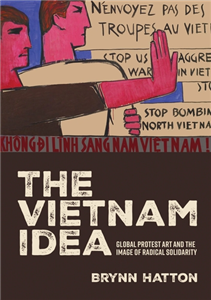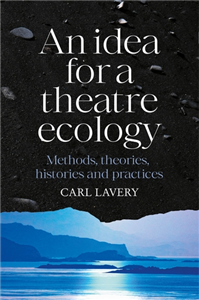Your Search Results
-
Promoted Content
-
Promoted ContentJuly 2005
An Liebe
Gedichte
by Idea Vilariño, Peter Schultze-Kraft, Erich Hackl, Dorothee Engels, Erich Hackl
»Es sind Gedichte der unmöglichen, der unerwiderten, der abwesenden, der verschmähten und verschlampten Liebe ... Voller Verzweiflung und zugleich durchdrungen von der Ahnung, nein: Gewißheit, daß ... ›die Hoffnung vorüber ist. / Was bleibt, ist die Spur ihrer Lüge.‹« Erich Hackl
-
 Trusted Partner
Trusted Partner
-
 Trusted Partner
Trusted Partner
-
 Trusted Partner
May 1997
Trusted Partner
May 1997Gesammelte Olivenkerne
Aus dem Tagebuch der Fremde
by Schami, Rafik / Illustriert von Leeb, Root
-
 Trusted Partner
August 1997
Trusted Partner
August 1997Die Sehnsucht fährt schwarz
Geschichten aus der Fremde
by Schami, Rafik / Illustriert von Leeb, Root
-
 Trusted Partner
August 1997
Trusted Partner
August 1997Der Fliegenmelker
Geschichten aus Damaskus
by Schami, Rafik / Illustriert von Leeb, Root
-
 Trusted Partner
Humanities & Social SciencesAugust 2021
Trusted Partner
Humanities & Social SciencesAugust 2021Rules and ethics
Perspectives from anthropology and history
by Morgan Clarke, Emily Corran
This book investigates the pronounced enthusiasm that many traditions display for codes of ethics characterised by a multitude of rules. Recent anthropological interest in ethics and historical explorations of 'self-fashioning' have led to extensive study of the virtuous self, but existing scholarship tends to pass over the kind of morality that involves legalistic reasoning. Rules and ethics corrects that omission by demonstrating the importance of rules in everyday moral life in a variety of contexts. In a nutshell, it argues that legalistic moral rules are not necessarily an obstruction to a rounded ethical self, but can be an integral part of it. An extended introduction first sets out the theoretical basis for studies of ethical systems that are characterised by detailed rules. This is followed by a series of empirical studies of rule-oriented moral traditions in a comparative perspective.
-
 Trusted Partner
Business, Economics & LawMay 2024
Trusted Partner
Business, Economics & LawMay 2024Governance, democracy and ethics in crisis-decision-making
The pandemic and beyond
by Caroline Redhead, Melanie Smallman
This book is a powerful addition to a developing literature informed by arts and humanities research carried out during the COVID-19 pandemic. Investigating the impacts of crisis governance and decision-making on people and populations, the book brings together microbial organisms and humans, children and data, decision-making and infection prevention, publics and process, global vaccine distribution and citizens' juries. Through its eight chapters, the book stimulates broadly-drawn discussions about exceptional executive powers in an emergency, the role of trust, and the importance of the principles of good governance - such as selflessness, ethics, integrity, accountability and honesty in leadership. The lessons drawn out in this book will support future decision-makers in both ordinary times and extra-ordinary emergencies.
-
 Trusted Partner
Trusted Partner
-
 Trusted Partner
Humanities & Social SciencesJanuary 2022
Trusted Partner
Humanities & Social SciencesJanuary 2022How to Promote Motivation to Change
by Hötzel, Katrin; von Brachel, Ruth
Promoting motivation to change is one of the most important treatment components in psychotherapeutic practice across disorders. Working through ambivalence and ultimatelyincreasing motivation to choose recovery with all its consequences is one of the main goals in treatment. This book presents the current state of knowledge anddescribes practical interventions to promote motivation to change. When dealing with ambivalent issues, an open, therapeutic attitude is recommended, as well as certainstrategies for conducting conversations to avoid reactance and resistance. The main focus of the book is therefore on therapeutic conversation and concrete interventions to clarify and increase motivation to change. For:• medical and psychological psychotherapists• child and adolescent psychotherapists• specialists working in psychiatry, psychotherapy,or psychosomatic medicine• clinical psychologists• psychological counselors• students and teachers in psychotherapeutic training,further training, and continuing education
-
 Trusted Partner
The ArtsJune 2026
Trusted Partner
The ArtsJune 2026The Vietnam idea
Global protest art and the image of radical solidarity
by Brynn Hatton
The Vietnam idea examines how Vietnam became a potent symbol for global movements fighting colonialism, racism, and imperialism during the American War and its aftermath. Rather than focusing on Vietnam as a place, Brynn Hatton explores how artists and activists around the world used the idea of 'Vietnam' to express political identification and solidarity through posters, films, protest actions, exhibitions, and conceptual art. Drawing on international archives, the book reveals how diverse visual works helped shape the political imagination of the global left, and continue to influence how we see identity, conflict, and solidarity today.
-
 Trusted Partner
May 2021
Trusted Partner
May 2021The Humane Idea
Rudolf Virchow and Hermann von Helmholtz. The legacy of the Charité
by Ernst Peter Fischer, Detlev Ganten
Two of today’s leading scientists, Ernst Peter Fischer and Detlev Ganten, reconfirm the legacy of two influential 19th-century researchers. To mark the 200th birthday of Rudolf Virchow (1821–1902) and Hermann von Helmholtz (1821–1894), they explain why pioneering research and holistic thinking are still relevant for health science and practice, and for a sustainable balance of people, society and the environment. The historical achievement of Virchow and Helmholtz continues today with the work of researchers like Emmanuelle Charpentier and Christian Drosten, so ensuring that the humane idea continues to be fruitful in the future. An insight into the history of medical science.
-
 Trusted Partner
Trusted Partner
-
 Trusted Partner
The ArtsJuly 2025
Trusted Partner
The ArtsJuly 2025An idea for a theatre ecology
Methods, theories, histories and practices
by Carl Lavery
An Idea for a Theatre Ecology is the first book in the discipline of Theatre and Performance Studies to provide a rigorous and coherent theory of the ecology that is immanent to the theatrical medium. Over six clearly written chapters, the book provides a genealogy, outlines a method, provides a lexicon and demonstrates an alternative practice of ecoperformance analysis grounded in the figure of the archipelago. Focusing on Antonin Artaud's theatre of cruelty, the book argues that theatre has no need to provide ecological messages nor to transform itself into a platform for the narration of ecological stories. Instead, more is to be gained, environmentally and politically, by concentrating on the power of images, gestures and voices to create corporeal affects and sensations that implicate the spectators in a terrestrial event.
-
 Trusted Partner
Humanities & Social SciencesApril 2025
Trusted Partner
Humanities & Social SciencesApril 2025The ethics of researching the far right
by Antonia Vaughan, Joan Braune, Meghan Tinsley, Aurelien Mondon
-
 Trusted Partner
Theory of ArtSeptember 2014
Trusted Partner
Theory of ArtSeptember 2014The Idea of the Avant Garde - And What It Means Today
And What It Means Today
by Marc James Léger
This book is premised on the view that the idea of the avant garde has an increased importance in these times of global political crisis. Much cultural production today is shaped by a biopolitics that construes all creative and knowledge production in terms of capital accumulation. A different kind of culture is possible. This collection of writings, essays, interviews and artworks by many of today's most radical cultural practitioners and astute commentators on matters avant garde mediates the different strategies and temporalities of avant-garde art and politics. Tracing diverse genealogies and trajectories, the book offers an inter-generational forum of ideas that covers different arts fields, from visual art, art activism, photography, film and architecture, to literature, theatre, performance, intermedia and music. This is an extraordinarily rich collection and is sure to be a benchmark for many years.
-
 Trusted Partner
Trusted Partner
-
 Trusted Partner
March 2023
Trusted Partner
March 2023Why We Need Comfort
On the trail of a human need
by Jean-Pierre Wils
— The accompanying book to the Kassel exhibition "Trost" ("Comfort") in spring 2023 — A book to counter desolation in these challenging times — What comfort is and why people need it "Comfort" is one of those words that has a somewhat tarnished reputation: cold comfort, false comfort, consolation prize, someone is not to be comforted ... "Action instead of comfort" is the maxim; "therapy instead of resignation" the variant. There is something old-fashioned about comfort. And still we long for it; people have always looked for "sources of comfort". In the midst of the climate and global political upheavals of our time, in the middle of a Ukraine war, a play recently celebrated at the Salzburg Festival is called, "Crazy for Consolation". People seek comfort because just helping is no longer helping; they are at the end of their abilities. "Comfort" would appear to be a gift in both senses of the word. But "comfort" is a mystery. Jean-Pierre Wils attempts to solve it in this essay.
-
 Trusted Partner
Humanities & Social SciencesApril 2014
Trusted Partner
Humanities & Social SciencesApril 2014Radical democracy
Politics between abundance and lack
by Simon Tormey, Lars Toender, Lasse Thomassen, Jon Simons
Available at last in paperback, Radical democracy brings together original contributions from established and emerging scholars. The contributors discuss the theoretical and practical implications of the two dominant approaches to radical democracy: theories of abundance inspired by Gilles Deleuze and theories of lack inspired by Jacques Lacan. They examine the idea of radical democracy from a wide variety of perspectives: identity/difference, the public sphere, social movements, nature, popular culture, right wing populism and political economy. In addition, the volume relates the work of contemporary thinkers such as Deleuze, Lacan, Derrida and Foucault to classical thinkers such as Spinoza, Hegel, Marx and Nietzsche. William Connolly and Ernesto Laclau conclude the volume with two afterwords on the future of radical democracy. With its original contributions, Radical democracy is essential reading for advanced students and scholars who have an interest in the political and theoretical problems of radical democracy. ;




























